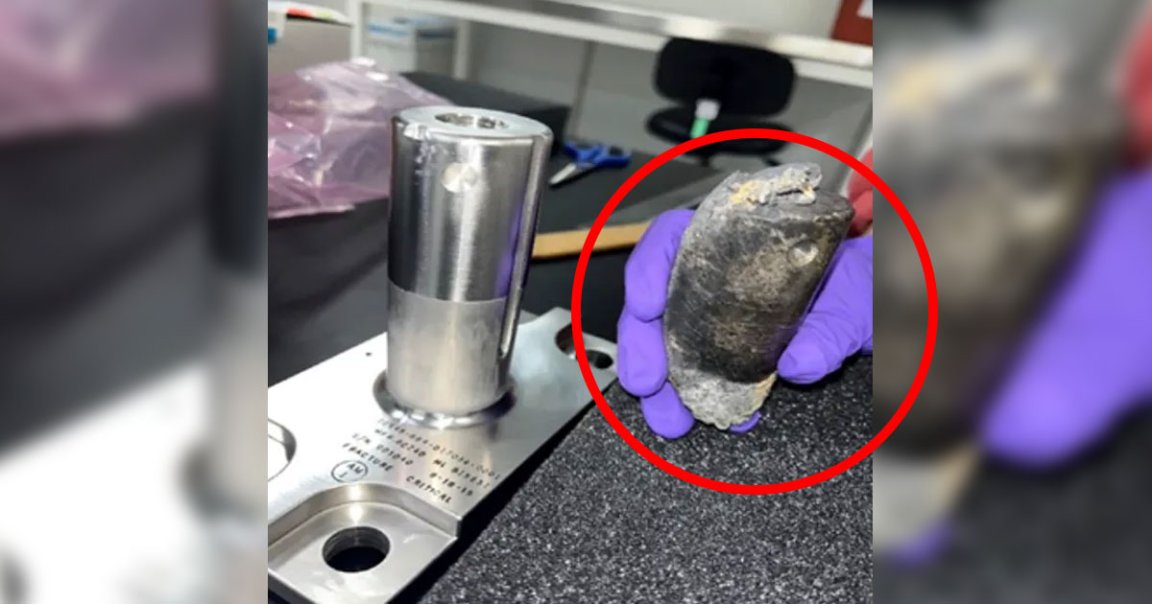
Space Dump
Last month, a mysterious, two pound object crashed through the roof of Alejandro Otero’s home in Naples, Florida — narrowly missing his son, who was sleeping two rooms away.
While experts suspected at the time that the piece may have originated from the International Space Station, NASA has now officially confirmed that the cylindrical piece of metal alloy once belonged to the aging orbital outpost.
The space agency said that the object was part of a support barrier that was used to mount batteries onto a cargo pallet, which was eventually dumped by the ISS.
“The hardware was expected to fully burn up during entry through Earth’s atmosphere on March 8, 2024,” NASA said in a statement. “However, a piece of hardware survived and impacted a home in Naples, Florida.”
Bullseye
The incident highlights a growing problem with space junk, ranging from nuts and bolts to used-up rocket boosters and cluttering the Earth’s orbit. Many of these objects eventually reenter the Earth’s atmosphere, with some of them partially surviving the blistering journey.
In some rare cases, they can even come down in populated areas. Thankfully, nobody got hurt after the object tore a sizable hole through the roof and upper floor of Otero’s Florida home.
“I was shaking,” Otero recalled in an interview with NBC affiliate Wink-TV last month. ” I was completely in disbelief. What are the chances of something landing on my house with such force to cause so much damage.”
Traumatic Breakup
NASA has since announced that it’s looking into how pieces of the cargo pallet managed to survive their fiery journey through the atmosphere.
“NASA specialists use engineering models to estimate how objects heat up and break apart during atmospheric re-entry,” the agency said. “These models require detailed input parameters and are regularly updated when debris is found to have survived atmospheric re-entry to the ground.”
NASA isn’t the only perpetrator when it comes to surviving space trash raining down on us. China’s space program has garnered a reputation for having its rockets make uncontrolled reentries after launch, triggering international outrage.
Fortunately, it’s extremely rare for somebody to be struck by an errant piece of space junk. Recent estimates suggest the chances of that happening to be less than one in a trillion.
More on the incident: NASA Recovers Debris That Crashed Through Florida Man’s Roof